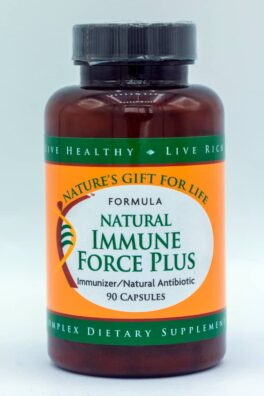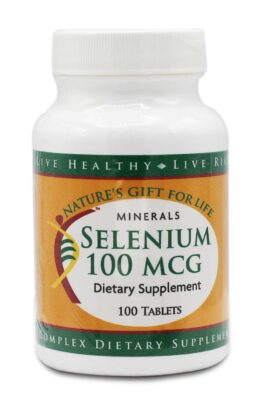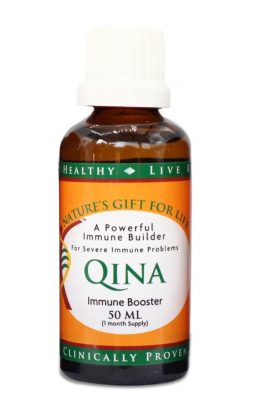HIV-AIDS
DOCTORS RECOMMENDED PRODUCTS
-
HIV-AIDS
Qina Immune Booster (HIV / AIDS)
0 out of 5(0)
Benefits of this product for (HIV / AIDS)
- Qina Immune Booster
- A Powerful electro immune modulator
- Facilitates the body’s response to the imbalances that have occurred and, in turn, provides optimum health and quality of life
>>>Read More
SKU: n/a
Acquired immunodeficiency syndrome (AIDS) is a condition in which the immune system becomes severely weakened and loses its ability to fight infections. It results from contracting the human immunodeficiency virus (HIV).
HIV infection is detected through a blood test. An “HIV-positive” test result indicates HIV infection. Most people who contract HIV see a progression to AIDS symptoms within 10-15 years of initial infection, though symptoms may occur earlier for some.
AIDS is an extremely complex disorder and, although no cure is currently available, certain drugs seem to slow the progression of the disease. In addition, various nutritional factors may be helpful in supporting the immune system. Because of the complicated nature of this disorder, medical supervision is strongly recommended with regard to dietary changes and nutritional supplements.
HIV causes a broad spectrum of clinical problems, which often mimic other diseases. Within a few weeks of infection, some people may experience flu-like symptoms, including fever, general sickness and poor energy, rash, joint pain, and swelling of the lymph nodes. These acute manifestations usually disappear and many people remain asymptomatic for long periods of time.
The onset of AIDS itself is when an HIV positive patient develops opportunistic infections and has a CD4 lymphocyte count of 200 or less. The immune system is severely damaged at this point. The signs and symptoms of some of these infections may include: soaking night sweats; shaking, chills, or fever higher than 100 F (38 C) for several weeks; dry cough and shortness of breath; chronic diarrhea; persistent white spots or unusual lesions on the tongue or in the mouth; headaches; blurred and distorted vision; weight loss; persistent fatigue; swelling of lymph nodes for more than three months; shingles; Pneumocystis carinii pneumonia; tuberculosis; and skin infections. An Important Note on Prevention; the only way to prevent AIDS is to avoid becoming infected with HIV.
HIV is spread most often by having unprotected sex with an infected partner. The virus enters the body through the vagina, vulva, penis, rectum, or mouth during sex. HIV is also spread through contact with infected blood. This can occur while sharing needles during intravenous drug use and through other direct blood-to-blood contact. It is possible to contract HIV through receiving infected blood during a blood transfusion, though this is highly unlikely in many countries now due to thorough screening of donated blood. Mothers can also spread the virus to their babies during pregnancy, childbirth, or breast-feeding. Being aware of how the disease is spread and practicing “safe” sexual habits are the best ways to avoid infection. If you test positive for HIV, arrange for repeat testing as soon as you can to rule out the possibility of a false-positive result. If the initial result is confirmed, IMMEDIATELY begin boosting your immune system. This is the single most important factor in preventing complications, and it is the best defense for the person with HIV!
Healthy Things You Can Do
Good nutrition is vital for people with HIV. Increase the amount of food you eat, and maintain your lean body weight. Be sure to eat a balanced diet, including plenty of protein and whole grain foods, with some sugar and fat. Increase your intake of fresh fruits and raw vegetables.
• Add shiitake, Reishi, and maitake mushrooms or supplements to your diet.
• Consume plenty of fresh live juices and green drinks from leafy greens with garlic and onions added.
• Take appropriate dietary supplements and supplementary fiber.
• Exercise and reduce lifestyle stress.
• Drink plenty of liquids to help your body deal with any medications you are taking. Drink at least two liters of steam-distilled water per day.
• Eliminate junk food, and avoid alcohol and cigarettes.
• Limit your intake of soybeans and soy products, which contain enzyme-inhibitors.
• Avoid Echinacea; it stimulates T-cell replication, which in turn enhances
replication of the virus.
• Always use a condom.
• Practice food safety. Keep your kitchen clean, wash foods, and be careful about food preparation and storage. If your tap water isn’t pure, drink bottled water. Use caution when choosing the foods you do eat to avoid food-borne illnesses.
When adding nutritional supplements to your health routine, first seek expert advice and guidance from your health care provider.



